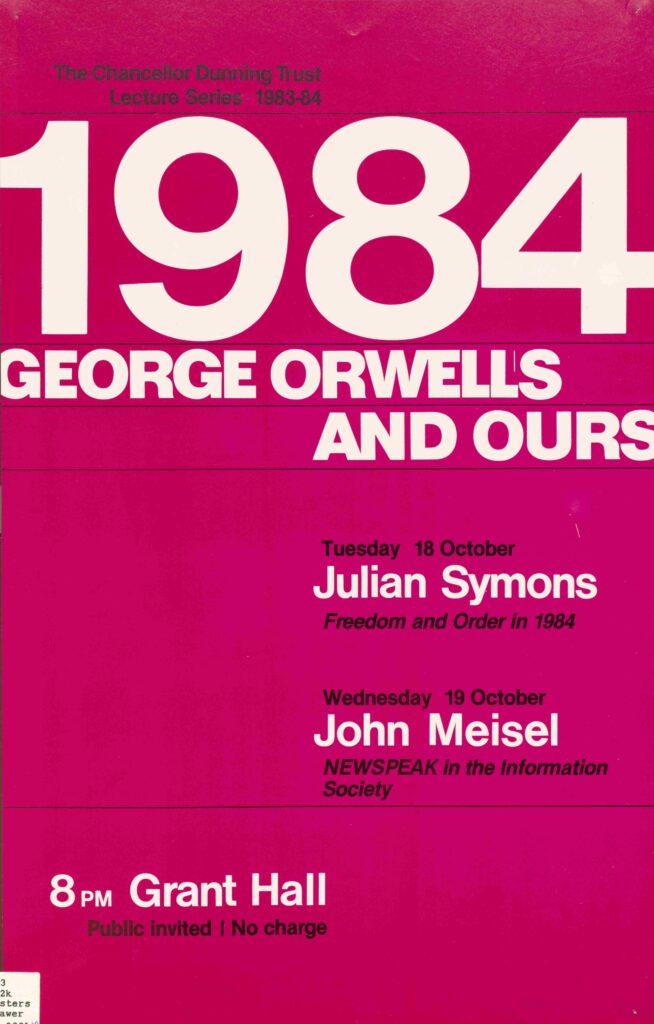
John Meisel was Professor Emeritus in the Department of Political Studies at Queen’s University and a well-known researcher of political behaviour in Canada. From 1949 to 1979, he taught at Queen’s. Throughout his career, he studied political parties, elections, Quebec politics, culture policy, and broadcasting. Meisel served as the founding editor of both the Canadian Journal of Political Science and the International Political Science Review, as well as the president of the Royal Society of Canada. A strong supporter of Canadian culture and the arts, in 1979 he left Queen’s when he was appointed as chair of the Canadian Radio-television and Telecommunications Commission (CRTC). In 1984, he returned to Queen’s as the Peacock Chair in Political Science. Throughout his career, Meisel served on a number of commissions and task forces, including the Royal Commission on Bilingualism and Biculturalism and Ontario Premier Robarts’ Advisory Committee on Confederation. His contributions to Canada were recognized in 1989, when he was made an officer of the Order of Canada, and again in 1999, when he was promoted to Companion, the highest grade in the Order.
Meisel’s lecture was a part of the series “1984: George Orwell’s and Ours.” In it, Meisel addressed a number of ways in which the emerging information society resulting from the fusion of computer and advanced communications technologies posed problems similar to the themes covered in George Orwell’s 1984. While he didn’t believe that the society depicted in 1984 had arrived, Meisel did believe that there was a danger that some aspects of it would emerge in the coming years. The most obvious concern of the information revolution was the potential for the massive invasion of privacy by both state and corporations, but Meisel also highlighted more subtle effects of the information society on the future of authoritarianism. Our increasing reliance on computers, as well as the prevalence of visual imagery and screens, would, he predicted, impact human thought processes and decision-making, perhaps leading to an increased willingness to accept authoritarian rhetoric. The rise of information industries was also precipitating the decline of print media, and its integration into digital media, which might reduce the number and sources of data and opinions on public issues. Information overload would make it difficult to wade through facts and data to make sensible decisions. Meisel also saw a profound gulf emerging between the information-rich and the information-poor, in part linked to generational divides. Finally, border-crossing satellite footprints challenged traditional regional and national borders, producing a strong tendency toward universalism and creating new loyalties that could produce political instability in the future. However, Meisel also argued that all of these issues were two-sided. The universalizing tendencies of current technologies were matched by particularizing developments: for example, as national press consolidated into a few newspapers, neighbourhood papers were also on the rise.
The lecture was held on October 19, 1983. Read or listen to it below.